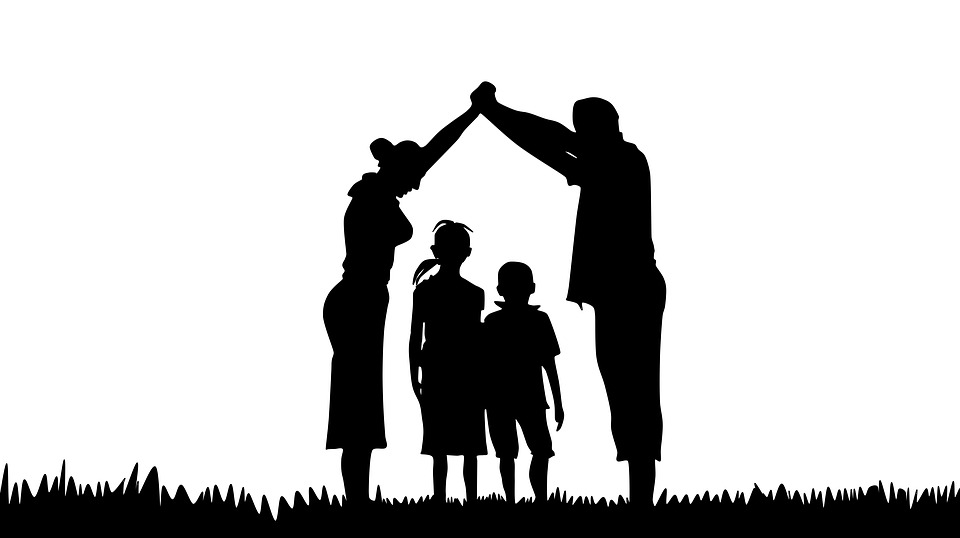No family is perfect. People with less “functional” or “ideal” home lives can be indirectly making those of a more “functional” home life feel guilty for their healthy childhood. Our job is to cease the issue of shame and instead feel grateful for those with healthy home lives and hopeful for the human species. This leads me to the topic of being vulnerable and supportive in your relationships with friends, family, and partners.
How did this come up?
I was talking to my friend about growing up, when the topic of being guilty for having a so-called “nuclear family” or “perfect family” came up. He explained to me that people have actually made him feel partially guilty for having a supportive, healthy, and happy family. This has maybe even caused him to talk about his family less in front of people that don’t have “perfect” home lives.
I was shocked and disappointed to hear this. Several of my friends have expressed the same issue. They have parents that are happily married, supportive of their children, and have financial stability. These healthy-home people are surrounded by friends that have separated parents, financial hardship, and dysfunctional families that indirectly (and sometimes directly) made them feel bad that they were born to a healthy family.
My Response:
This did not sit well with me for many reasons. My first reaction to hearing about a healthy family and supportive parents is not to be jealous, to “top” the person by telling them about my worse situation, or to repeatedly tell them that they are so lucky. I feel a bit of hope for humans, and I feel happy that they had/have familial support at home.
I don’t understand why someone with issues at home would make another person feel guilty for having a good life. Like, what the flap jacks?! What do you want them to do?! Say, “I am sorry I had a good childhood, let me just go fix that for you and make my life worse so that we can try to one-up each other with home issues.” No. That is dumb.

What we can do instead:
We need to start feeling happy for one another’s positive life experiences and avoid “topping” one another’s negative ones. We should be supportive of our friends and not compare situations. The most rewarding friendships that I have developed, were ones where we talked about our lives and supported one another without any competitions or guilt.
Being vulnerable and honest is something important in healthy relationships, and being supportive and understanding in response is vital to make the vulnerability piece successful. These relationships tend to last longer than distant casual friendships, and they tend to bring a sort of safe positivity to your experience in this world.
I too often see people “one-up” each other with details about their life. It is like some sort of game where the worse experiences you have the cooler you are. I don’t get it.
When a person tells me about a negative experience they had, I normally respond with support and understanding that opens the door for them to talk about it if they want or don’t. I usually confirm that it is okay to feel the way they do and note that they made it through.
This can be applied to positive experiences as well. I have been working on responding with joy for others. For example, if a person tells me they have been to Europe, I would respond by letting them know that it is great they had the opportunity and ask them to tell me what it was like instead of complaining that I haven’t been to Europe.
Now, if they ask where you have been, it is okay to say you haven’t been to those places, but you should include that you plan to one day instead of being jealous or saying they are “lucky”.

I am guilty too…
I am guilty of this as well, since I have a bad habit of comparing myself to others and having a negative mindset, so I am working on this myself.
I have been doing my best to support anyone and everyone that is vulnerable with me, and I try to keep my relationships positive. I learned this in group therapy this year and I have seen results in my relationships.
Obviously, no one is perfect and we sometimes mess up, because we aren’t paying attention or are in a bad mood. The key is to check yourself and make sure to correct your actions. When I catch myself being negative, I try to apologize to the person, re-training my brain to respond positively.
Not only does this make my relationships better and my friends’ lives better, it also makes my life more positive in general.
Conclusion
Be vulnerable and supportive when people are vulnerable with you. Respond positively and deepen your relationships. Nobody is perfect, but we can correct ourselves and slowly make our lives more positive one interaction at a time. Lastly, be aware of your own responses and mindset. You have the power to make your life more positive and healthy, so take control.




